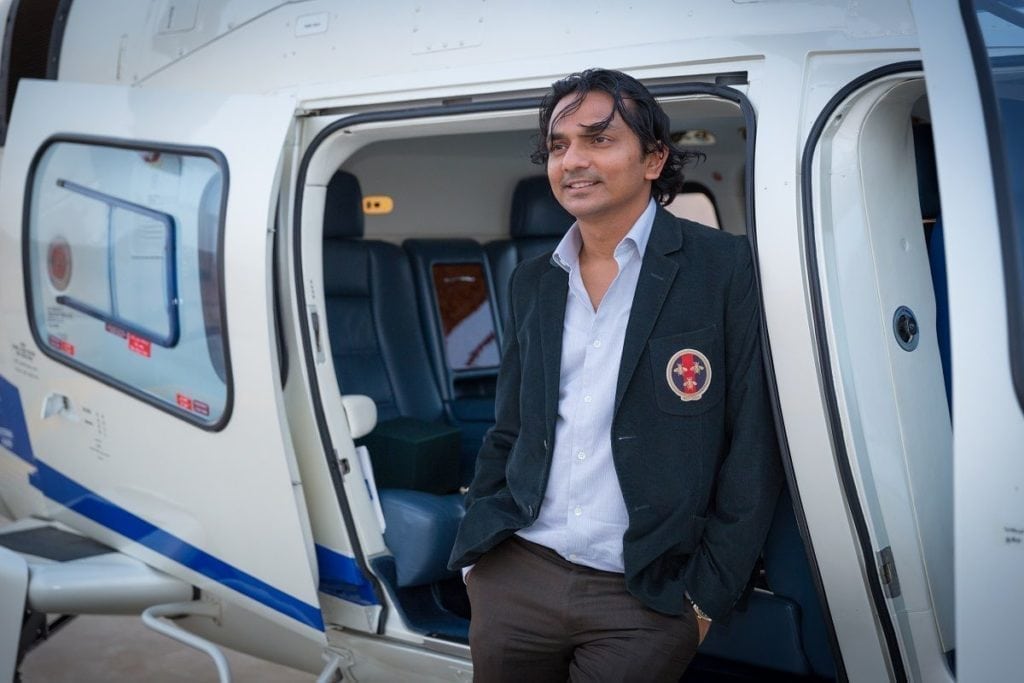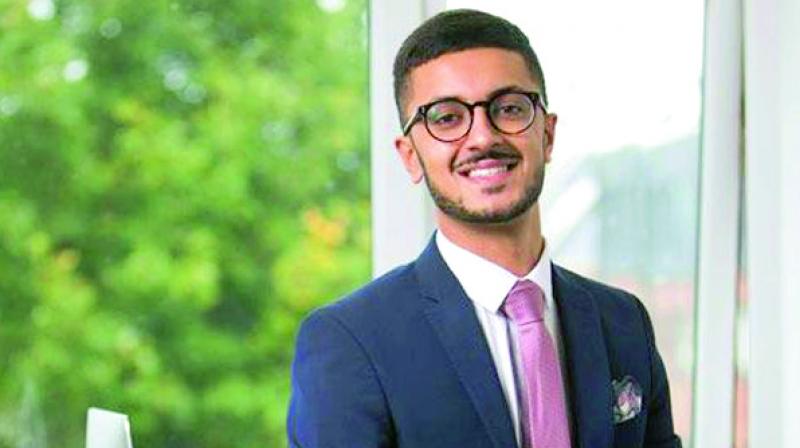(October 22, 2021) He was all of 14, when Divyank Turakhia began consulting with large companies. It had all begun when someone at NASSCOM called him in to fix their internet problem. His first million came when he was 16-years-old from a company he co-founded with his brother, Bhavin, after the duo took a loan of ₹25,000 from their father. Today, this 39-year-old founder of ad-tech platform Media.net is India’s richest under-40 billionaire with a net worth of ₹12,500 crore ($1.7 billion) according to the recently released IIFL Wealth Hurun India 40 & Under Self-Made Rich List.
Divyank, who has built several successful businesses and made stunning exits on many of them, certainly has a penchant for identifying and working towards the right opportunities. He sold the six-year-old Media.net to a consortium of Chinese investors in 2016 for a whopping $900 million. This shot the brothers’ net worth to $1.3 billion, who have been creating an array of businesses that include web hosting, cloud infrastructure, voice and messaging services, and digital payments with offices in Dubai, Los Angeles, New York, Zurich, and Beijing. However, for this typically middle-class Mumbai lad this path to success is peppered with hard work and some seriously smart business acumen.

Bhavin and Divyank Turakhia
The Mumbai lad who took on the world
Born in Mumbai in 1982, Divyank grew up with a chartered accountant father and a homemaker mother, who encouraged the brothers to expand their horizons through reading and a constant questioning of the status quo. For instance, while Divyank enjoyed playing video games, his father challenged him to create one himself. At the age of 13, Divyank developed a business-solution game along with a 15-year-old Bhavin. “Playing the game was educational. Creating it was an experience,” Divyank told Forbes in an interview.
In fact, this Global Indian earned his pocket money by doing computer projects for the rich kids at his school Arya Vidya Mandir. He began freelance consulting when he was 14 and by 1998, he had founded Directi with the loan from his father. With 40 clients in his portfolio, he paid his father back within the first month. He said, “When we were kids, we thought we could achieve anything. We still do.” He’d even bought the family’s first car, a Santro, by that time. By age 18, he’d bought his parents a better car: a Scorpio.

Divyank went on to do his B.Com from Narsee Monjee College of Commerce and Economics at the insistence of his mother, who wanted both him and Bhavin to at least have Bachelor’s degrees. Soon after, Divyank began setting up various businesses with his brother in the web services and payments areas. The two worked together till 2005, but soon figured that they could double their reach by working individually.
In the big league
In 2010, Divyank launched Media.net, which allows publishers to display ads based on the content on their sites. Talking about his success with Media.net with Mumbai Mirror, he said that persistence is the key difference between winners and losers. “Even when you have everything, you fail. But if you stop, then you have truly failed. Like with Media.net, I failed every day until one day I was successful.”
In the meanwhile, his first venture Directi, that he’d launched with Bhavin, sold for $160 million in 2014; it was the brother’s first big exit. He told YourStory, “Whenever you build businesses, one of the important things while you are building them is (to) keep figuring out what can I do to make something bigger. One of the important things to help you figure out how to grow anything, or build anything, is first to identify your core strengths. You need to know what you are really good at, and you need to know what you suck at also.”

Divyank is also an avid aviator
For Divyank, it is not about being the first in a space but about being the one to improve the existing. “I have never been the first to do something in any business. But no successful business really is,” he told Economic Times. “Google wasn’t the first search engine. Facebook wasn’t the first social network. Being the first mover is so often a disadvantage. The cost of things may be higher than that for the fifth or sixth one doing it.”
Media.net in the meanwhile focused most of its operations overseas, with 90% of its revenue coming from the US, 5% from the UK and Canada, and 5% from the rest of the world. It had become a leading player in the global advertising-technology sector. By 2016, Divyank sold the company to a Chinese consortium, which is when Bhavin stepped in to help him negotiate the deal so Divyank could focus on running the company. The duo had seven offers on the table and they took their time to choose the best deal. In the end they made a whopping $900 million in an all-cash transaction that shot them into the billionaires’ league. Divyank, continued as Media.net’s CEO even after the sale.
The world is his oyster
By this time, Divyank had also shifted base to Dubai from where he now divides his time between his homes in Los Angeles, Mumbai and wherever else he has operations. Quite the car enthusiast, he owns a fleet of luxury vehicles including a Ferrari 458 Spider, a Rolls Royce Phantom, an Audi A8, a Mercedes S-Class and a DC modified Innova.
Throughout his entrepreneurial journey, Divyank has shied away from external investors; he did once seek investment, but later bought back the stake. He and Bhavin have an agreement on how they share the revenues and ownership of their various businesses. “In my mind and in Bhavin’s mind, we both own everything and we both have access to everything,” said Divyank to Forbes. “When you own the beach, why would you be splitting the sand?”
The accolades and recognition have been pouring in too. He first entered the Forbes list of India’s 100 Richest People in 2016 and has steadily worked his way up ever since. By 2017 he was 27th on the Global 40 Under 40 Self-made Rich List, and was also declared the Youngest Indian Billionaire for three consecutive years from 2016-2018. This year, he topped the IIFL Wealth Hurun India 40 & Under Self-Made Rich List and has no plans of stopping any time soon. He’s got businesses to build and that’s where he’s currently focusing his energies.
Follow Divyank on LinkedIn.


